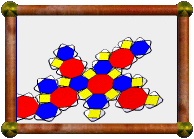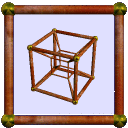 | Great Stellated Truncated Dodecahedron |
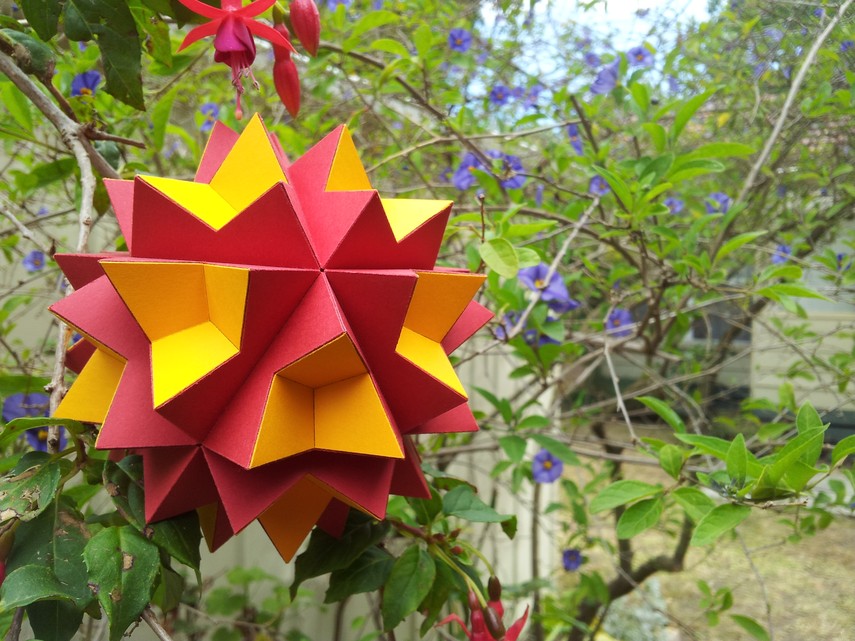
- Vertex description: 10/3.10/3.3
- Faces: 32
- Edges: 90
- Vertices: 60
- External facelets: 120
- Dual: Great triakisicosahedron
This uniform polyhedron consists of 12 decagrams (red) and 20 triangles
(yellow). Two decagrams and one triangle meet at each vertex. This is only a
faceting of a distorted version of the
rhombicosidodecahedron (not the Archimedean
one). It does however share its vertices with a few other uniform polyhedra:
the small icosicosidodecahedron, small ditrigonal dodecicosidodecahedron, and
small dodecicosahedron.
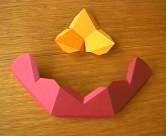
|
Twenty copies of these two nets are required to complete the model.
|
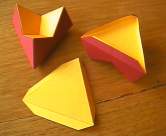
|
An extra triangle is glued into the base of each part to add strength.
Print these from Stella by printing nets for an
icosahedron, setting
"Nets→Maximum Faces per Net" to "1" to separate the triangles in
the net. To make an icosahedron of the appropriate size, you need to
either measure the base of this part, and set the icosahedron's edge
length to match, or use Faceting mode to explicitly create an
icosahedron of the required size. However, the length you want to
measure runs between two virtual vertices rather than real ones
(where edges intersect rather than where they meet at their ends).
That means you can't normally select them in the Base Polyhedron view.
You need to use the stellation instead, where all virtual vertices
become real. Switch to the Stellation view and you'll be able to
select them for measuring or faceting.
|
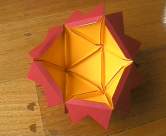
|
The parts are then joined like an
icosahedron.
|

